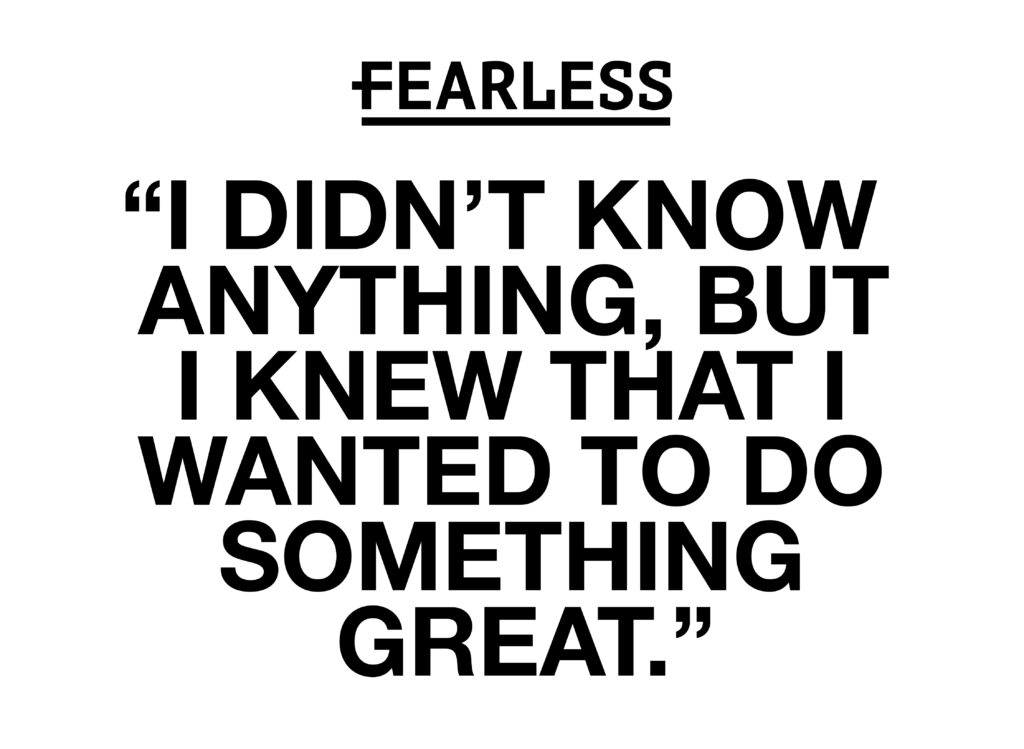Corrigan looks to begin next chapter
Des Moines Water Works GM, CEO looks back on challenges, changes during 35-year career with utility

Michael Crumb Jul 4, 2025 | 6:00 am
8 min read time
2,001 wordsAg and Environment, Business Record InsiderTed Corrigan hates the color baby blue. It might be an obscure fact but one that staff at Des Moines Water Works will add to the list of things they remember about him after he retires. It also changed the look of the water utility for years to come.
Corrigan, 61, will step aside from his role as general manager and CEO at Des Moines Water Works on July 18. He has spent the last 35 years with the utility, the last five as its leader. He announced his plans to retire in February.
Corrigan said his retirement has been in the works for a long time but was delayed when Des Moines Water Works switched from a standalone pension to IPERS.
“That had some financial implications that I needed to understand, but it’s also just a perfect time for me to retire,” he said.
The completion and launch of the regional Central Iowa Water Works, which he was instrumental in getting off the ground, and the fact there was a strong internal candidate to step into the role after he left, made the time right for a transition, Corrigan said.
“So it’s going to work for me personally and I think it’s going to be great for the organization,” he said. “I think it’s a good time. The stars kind of aligned in terms of this, so I’m comfortable with it.”
So what’s next?
“I always tell people I don’t have big plans, but I have a lot of plans,” Corrigan said.
He plans to stay in Iowa. He and his wife will travel more, particularly to see their daughters in Crystal Lake, Ill., and Los Alamos, N.M.
“We also like to spend time outdoors,” Corrigan said.
He wants to spend more time fishing and hunting, and is looking forward to getting out in the field with his dog, a chocolate lab named Jack.
“I have a new dog and he’s ready,” Corrigan said. “He’s going to be 3next month and this should be a good year for getting out with him and spending some time together. I just like being out with the dog more than I like hunting, actually. It’s fun to see them do what they do.”
Jack is named after Corrigan’s brother-in-law who passed away after a several-year battle with Hodgkin lymphoma.
Corrigan said he also plans to spend more time working with the Purify Project, a nonprofit that works on small, standalone water systems in Tanzania, Africa.
“I have done a little work with them and the team is there right now and but for being employed I would have gone with them again,” he said.
Then there is a family cabin that needs some work, and his family’s beekeeping operation.
“They could use some attention,” Corrigan said of the bees.
He’s a Des Moines native, graduating from Lincoln High School. He went to Iowa State University where he earned his engineering degree, and then moved to Chicago to join a consulting firm, where he worked for five years.
Corrigan returned to Des Moines in 1990 and began working as an engineer with Des Moines Water Works, moving up through the organization until he was named general manager and CEO in 2020.
Among the highlights of his career was the creation of the regional water utility.
“I just felt like I was in the right place at the right time to have a real contribution to that, and bring it to fruition,” he said.
Corrigan also mentioned his involvement in the Water Works Park master plan.
“That was one of my projects and it resulted in the amphitheater and the underpass and some things that are really great,” he said. “It was kind of outside my scope as an engineer but it was really fun and I got to know a lot of people in the community through the project.”
There’s also been water quality efforts that benefit the customer, he said.
For example, the Water Works’ service line maintenance program, which will fix leaks or problems in water service lines. More than 75% of customers are enrolled in that program, Corrigan said.
“It’s been a huge benefit to people,” he said.
There have been changes in rate structures, which Corrigan said has helped make water more affordable for customers.
Corrigan also talked about the dark days of the COVID-19 pandemic, and the flood of 1993.
Although those events created critical challenges for the utility, Corrigan cites the organization’s ability to respond and keep water running — or in the case of the 1993 flood restore water to customers — as successes for Des Moines Water Works.
In talking about the 1993 flood, he remembered being a young engineer tasked with the challenge of getting the water running again after flood waters swamped the water treatment plant, shutting down drinking water to the community, leaving more than 250,000 people without drinking water for nearly three weeks.
“I was a young engineer and spent all my time designing water mains and managing construction projects,” Corrigan said. “I didn’t do a lot of work in the plant. And then the flood came. The first night I was down there for 20 hours trying to figure out a supply of water that we could use to start cleaning because there was no water.”
He spent up to 14 hours a day, seven days a week looking for a solution.
“I learned so much and got to know so many people who were part of that success,” Corrigan said. “Obviously, it was traumatic. It was tragic when we lost that plant. But to recover it and start pumping water after a week and to have safe, clean water for the community after 19 days, it was a Herculean effort, and just being a small part of that at that time was really amazing.”
Going through some of those experiences, what has Corrigan learned about himself after 35 years?
“In situations like [the flood and the pandemic] I tend to rely on who I am at my core, which is, I’m an engineer,” he said. “It’s very methodical. It’s very purposeful. It’s not emotional. So, if we have this problem, what are we going to do to solve that problem? And then you go do it.”
That has at times been a challenge at home, he said.
“My kids, when they would come to me with a problem, they wanted me to commiserate with them and feel it with them and understand it and comfort them, and I’m like, ‘Oh, you have a problem? Let’s just fix it.’”
“And that’s kind of what I have learned about myself is that in a tough situation, I am an engineer and that’s where I go when it gets tough,” Corrigan said.
Corrigan also shared what he views as the greatest advancements in technology since he joined Des Moines Water Works when he was 27 years old.
When he began working with the utility, he didn’t have a computer at his desk. There were no cellphones. Today, of course, computers and cellphones are everywhere. And his email address is the same as it was when it was first assigned to him.
Operations at the treatment plant were manual. Over the years, those have been automated with adjustments and changes now made from a centralized control center, he said.
“They can do it at two other plants that are miles away and they can adjust 50 other facilities, pumping stations and booster stations and pressure monitoring stations and so on,” Corrigan said.
“The system has gotten so much more complicated but at the same time so much more sophisticated.”
Technology has also helped improve customer communication, allowing customers to ask questions and pay their bill 24/7.
When Corrigan steps down, Amy Kahler, who has served as the utility’s chief financial officer, will move into the leadership role.
Corrigan said there are many dedicated people at Des Moines Water Works who are committed to their job, and he’s confident the utility’s future will be bright long after he leaves.
His departing advice to the utility?
“The world has changed and people don’t stay 35 years in the same job anymore,” he said. “People move around all the time and we need to attract and retain the best people. So take care of the people here. Listen to the customers. Their expectations are changing and we need to meet their expectations.”
As he begins clearing out his office, Corrigan said he has no regrets. After all, leading a water utility was what he aspired to all along.
“When I left the job in Chicago, they asked me, ‘Why are you going to Des Moines?’ and I said, ‘Because some day I’d like to run a water utility,’” he said. “I will admit that I had no idea what it would take to run a water utility. I was 27. But it was always something I aspired to.”
During his 35 years with Des Moines Water Works, there were opportunities to apply for the general manager’s job, but Corrigan said he knew he wasn’t ready and the time wasn’t right.
But then Bill Stowe passed away.
“I told Bill in my first meeting with him, he asked where I wanted to be in five or 10 years, and I said I want to have your job,” Corrigan said. “It was always part of the plan and I would have been disappointed if I didn’t get the opportunity. I’m honored that I did. I’m going to miss it.”
His advice to the young Ted Corrigans coming up in the world?
“Aim high,” he said. “I’m a guy who never took a graduate level class in his whole life. I was not a good student in high school but when I got to college I loved engineering and loved what I did. So aim high. Make them tell you no. You never know what you can do until you try.”
And what is the deal with the color baby blue, you may be asking?
Corrigan really doesn’t like it. In fact, he hates it.
“When I came to Des Moines Water Works everything was baby blue. The trucks were baby blue. The water towers were baby blue. The pumps and the pipes were baby blue. And I hate baby blue. I just think it looked dirty all the time. I thought it doesn’t inspire confidence or strength. It’s just baby blue.”
Early in his career, the decision was made to stop paying extra to have everything painted baby blue, and everything was painted white because it was readily available. It wasn’t custom and didn’t need to be repainted.
“I thought, ‘Wow, that’s fantastic,’ so when I went to water production we had some opportunity to replace some pumps and do some repainting and I said we’re not painting anything else baby blue ever,” he said. “We started painting everything safety blue, which is a very vibrant dark blue.”
Today, water pumping and pipes are safety blue, and raw water pipes are safety green.
Those colors, Corrigan said, look fresh and clean all the time.
“I can tell you there’s not a single baby blue pump or pipe in the Des Moines Water Works inventory today,” he said. “And then, as I started moving through the organization, we started painting water towers and I said we are not painting another baby blue water tower.”
Inside his office is an old fire hydrant that is painted safety blue. It’s among the items he plans to take with him when he retires.
Corrigan has what could be described as a strong interest in fire hydrants. But being a water guy, it makes sense.
He takes pictures of himself with fire hydrants wherever he travels, including on a recent trip to Italy with his wife. He also has a collection of maybe a dozen fire hydrants around his yard at home.
“My wife is a saint,” Corrigan said with a grin.

Michael Crumb
Michael Crumb is a senior staff writer at Business Record. He covers real estate and development and transportation.











